Ipswich creeks and waterways will benefit with the construction of new water-filtering green assets.
Sarah Drive Park in Yamanto, Moodai Reserve in Bellbird Park, Bob Titcombe Park in Brassall and Fail Park in North Booval are to have these valuable environmental systems installed during 2020.
The benefits can be seen in places like Wallaby Ware Park, Brassall.
Two years ago the drainage system was an overgrown spoon drain, prone to erosion and sending litter and pollutants into Ironpot Creek that was harmful to fish, degraded water quality and caused algae to bloom.
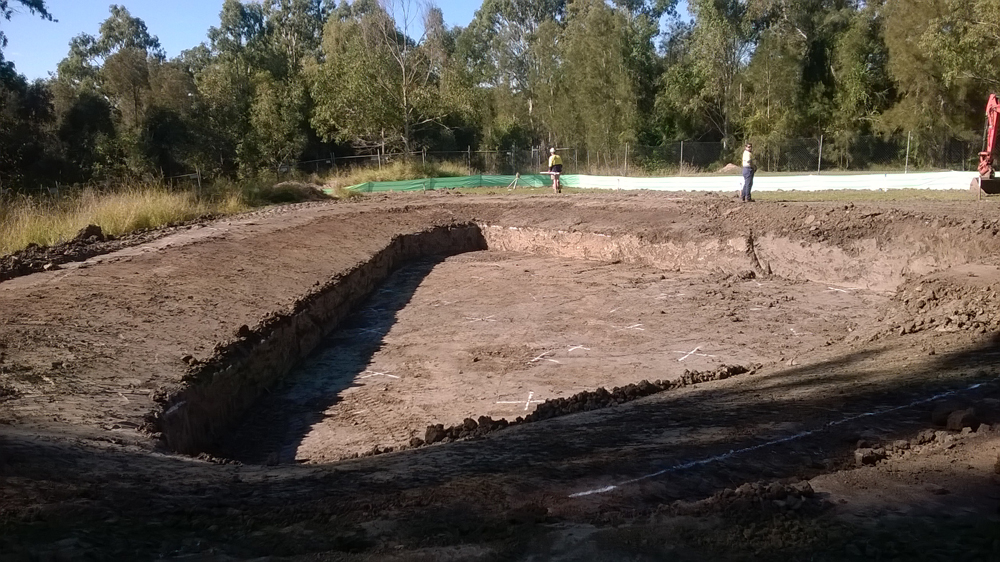
Wallaby Ware Park, Brassall mid-construction.
Council built a low-maintenance bio-retention basin and vegetated swale – essentially a large, shallow hollow filled with sand based filter and native plants.
Water diverts into the pond, where the sand and plants remove many of the pollutants, before the clean water drains back into the channel and to Ironpot Creek.
Natural Environment and Land Manager Phil Smith said these solutions were part of a suite of waterway protection and improvement projects important for urban areas where stormwater runoff from hard surfaces such as roads and roofs carried pollutants into the waterways.
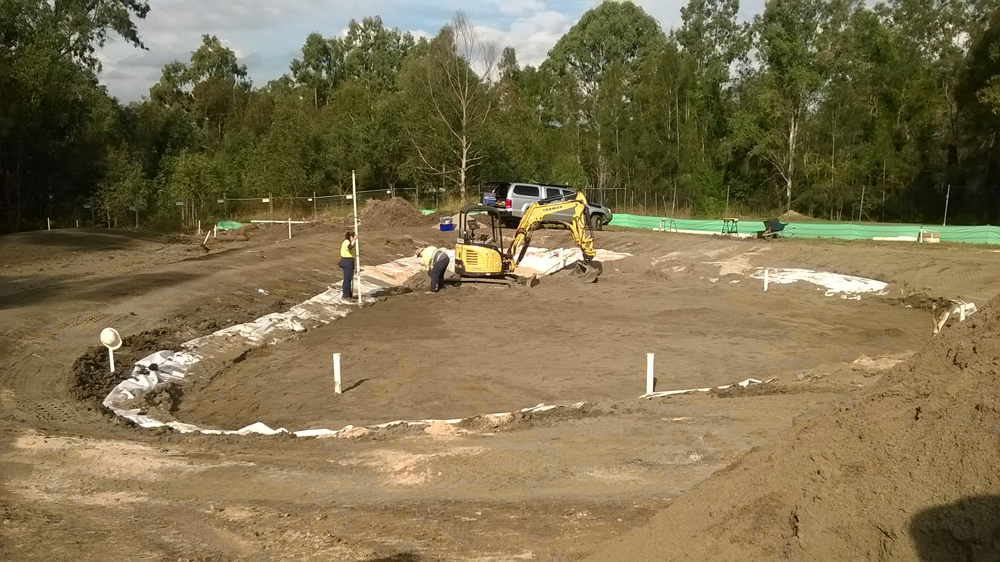
Wallaby Ware Park, Brassall during construction.
“Projects such as this – bio-retention basins, reconstructed wetlands and vegetated swales – recreate the natural process and filter out a lot of pollutants before they get to the creeks and waterways,” he said.
“In particular they are very good at removing nitrogen and phosphorous, which are the cause of some of the biggest nutrient problems for our waterways and Moreton Bay.
“At Wallaby Ware Park we now have increased infiltration of the water into the soil and the water is slower which, along with the extra vegetation, helps stabilise the banks of Ironpot Creek.”
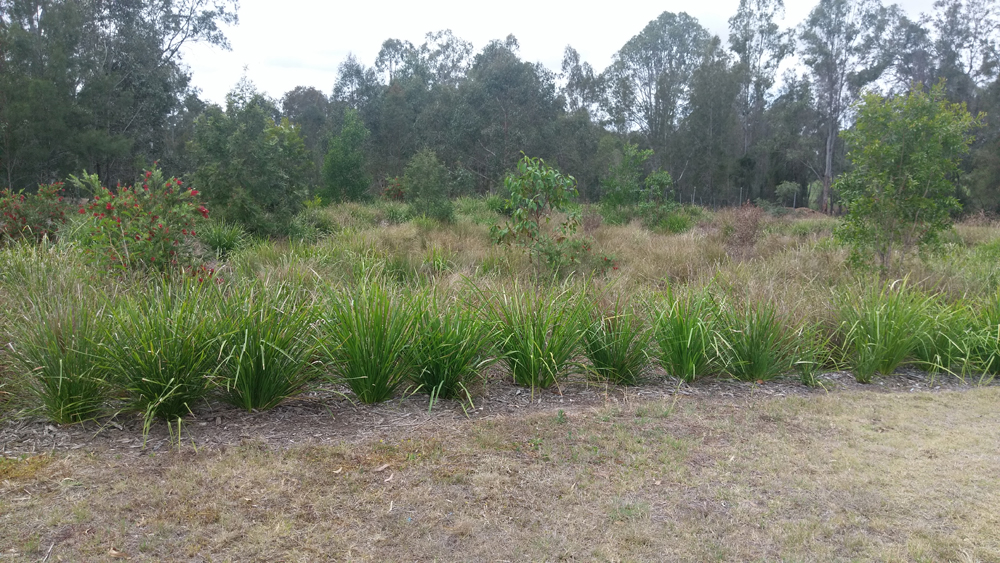
The completed low-maintenance bio-retention basin and vegetated swale at Wallaby Ware Park, Brassall.
Mr Smith said trees and plants within the bio-retention basin were flourishing, even in the current drought, because the system was essentially self-watering.
“This not only adds to the appeal of Wallaby Ware Park but also creates habitat for frogs and other species and helps to cool the urban area by increasing plant density and shade,” he said.
The projects are funded by the Stormwater Quality Offsets Scheme. Developers contribute to this fund and Council creates waterway projects that have multiple benefits for the region.
“Ipswich is one of the few councils doing this work ourselves,” Mr Smith said.
“The benefit is that we can put our efforts into effective and attractive green spaces that provide multiple great outcomes for the community.”

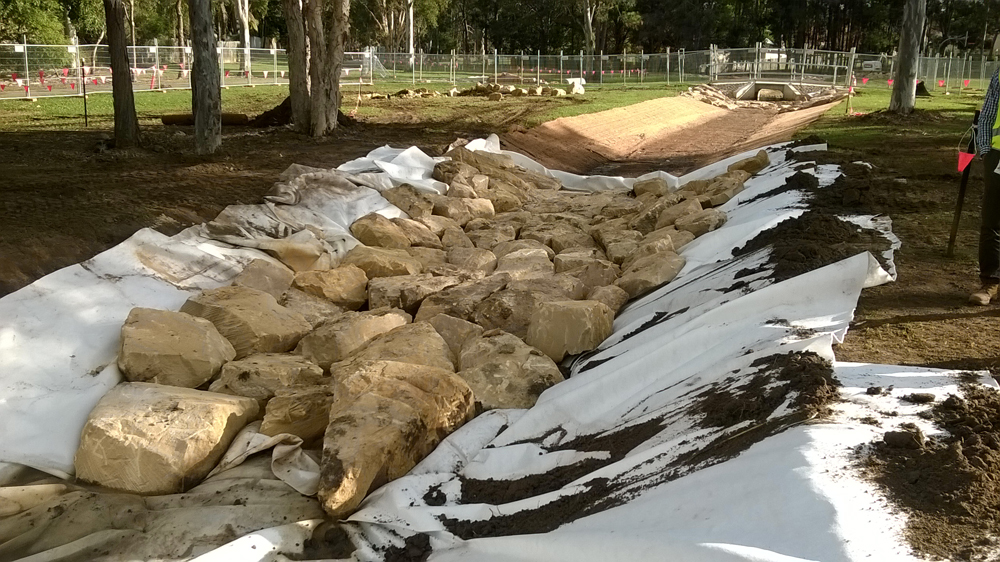
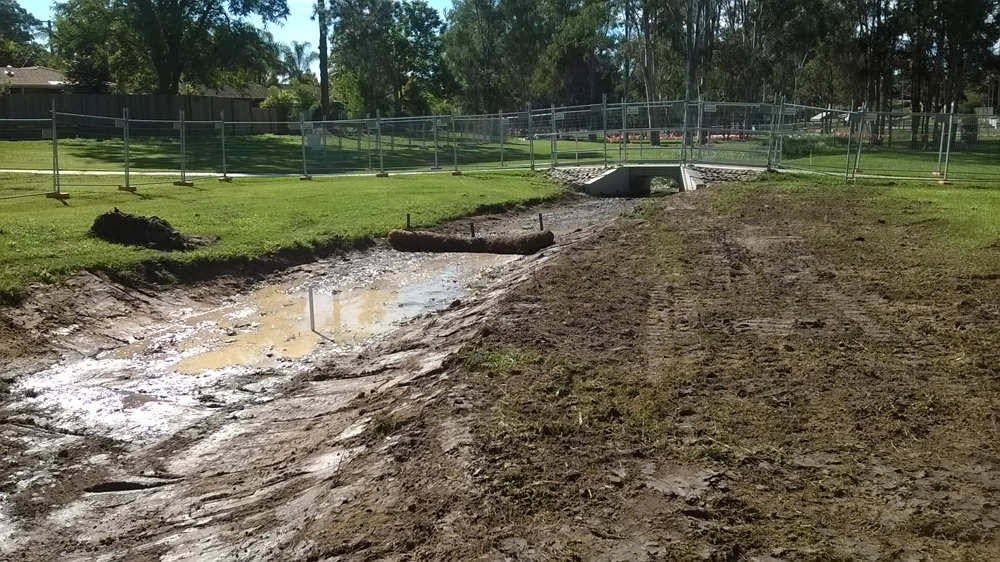
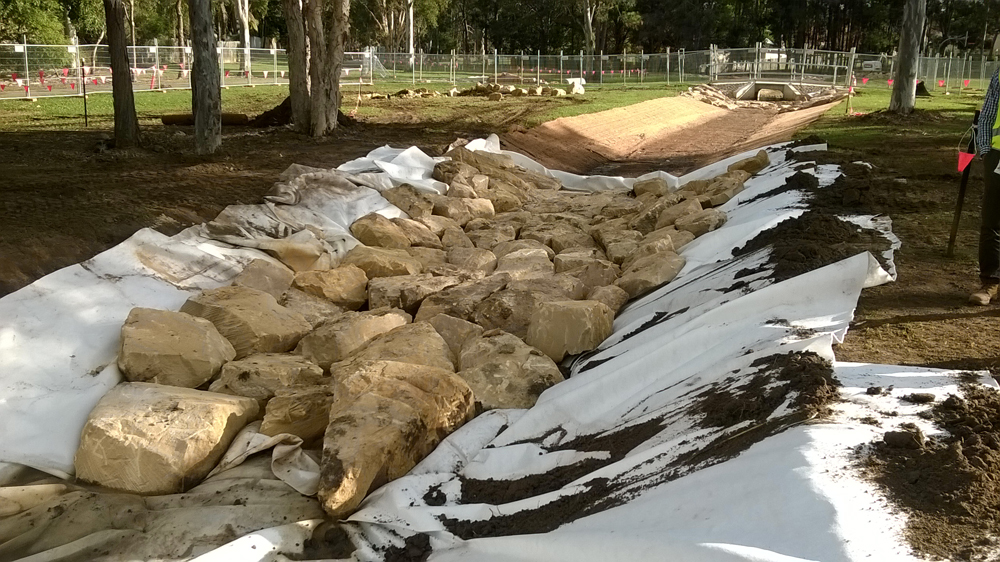
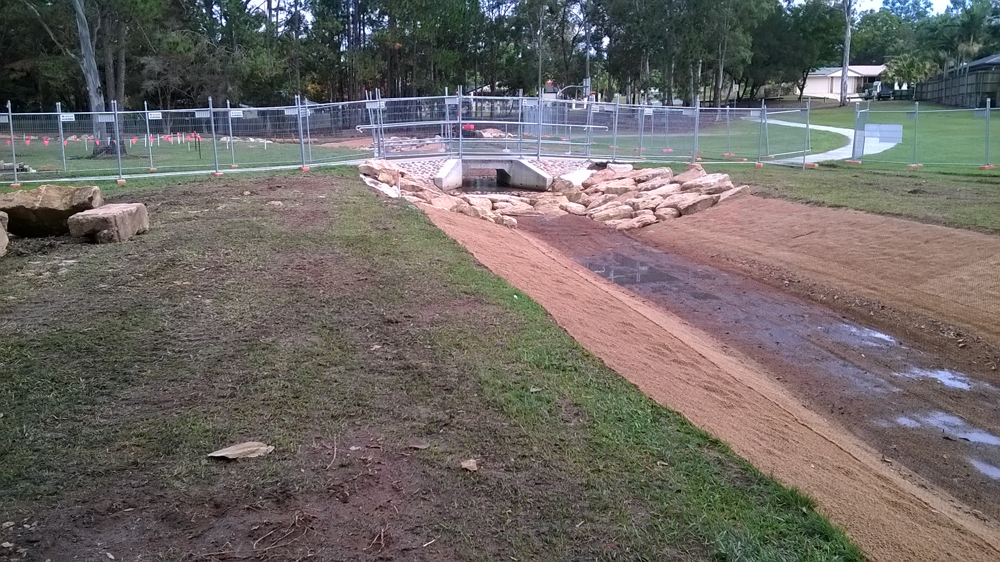

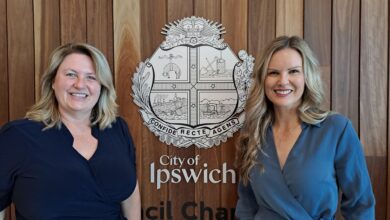
Great work by the council
Perhaps Ipswich as a community are valuing waterways as more than stormwater drains for developments to dump their waste in.
Waterways provide a great amenity particularly children to observe /explore our urban wildlife.
Now what we need is council’s planning and development to get the fact that it beeter not to allow developers and their token “offsets” to destroy waterways in the first place